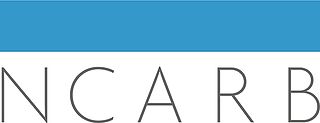Professional certification, trade certification, or professional designation, often called simply certification or qualification, is a designation earned by a person to assure qualification to perform a job or task. Not all certifications that use post-nominal letters are an acknowledgement of educational achievement, or an agency appointed to safeguard the public interest.

An accountant is a practitioner of accounting or accountancy. Accountants who have demonstrated competency through their professional associations' certification exams are certified to use titles such as Chartered Accountant, Chartered Certified Accountant or Certified Public Accountant, or Registered Public Accountant. Such professionals are granted certain responsibilities by statute, such as the ability to certify an organization's financial statements, and may be held liable for professional misconduct. Non-qualified accountants may be employed by a qualified accountant, or may work independently without statutory privileges and obligations.

The American Institute of Certified Public Accountants (AICPA) is the national professional organization of Certified Public Accountants (CPAs) in the United States, with more than 428,000 members in 130 countries. Founded in 1887 as the American Association of Public Accountants (AAPA), the organization sets ethical standards and U.S. auditing standards. It also develops and grades the Uniform CPA Examination. AICPA is headquartered in Durham, North Carolina, and maintains additional offices in New York City, Washington, D.C., and Ewing, New Jersey.

Certified Public Accountant (CPA) is the title of qualified accountants in numerous countries in the English-speaking world. It is generally equivalent to the title of chartered accountant in other English-speaking countries. In the United States, the CPA is a license to provide accounting services to the public. It is awarded by each of the 50 states for practice in that state. Additionally, all states except Hawaii have passed mobility laws to allow CPAs from other states to practice in their state. State licensing requirements vary, but the minimum standard requirements include passing the Uniform Certified Public Accountant Examination, 150 semester units of college education, and one year of accounting-related experience.

Certified Management Accountant (CMA) is a professional certification credential in the management accounting and financial management fields. The certification signifies that the person possesses knowledge in the areas of financial planning, analysis, control, decision support, and professional ethics. There are many professional bodies globally that have management accounting professional qualifications. The main bodies that offer the CMA certification are:
- Institute of Management Accountants USA;
- Institute of Certified Management Accountants (Australia);
- Certified Management Accountants of Canada.
CISSP is an independent information security certification granted by the International Information System Security Certification Consortium, also known as ISC2.
The Project Management Institute is a U.S.-based not-for-profit professional organization for project management.

Founded in 1904, the Association of Chartered Certified Accountants (ACCA) is the global professional accounting body offering the Chartered Certified Accountant qualification (ACCA). It has 240,952 members and 541,930 future members worldwide. ACCA's headquarters are in London with principal administrative office in Glasgow. ACCA works through a network of over 110 offices and centres in 51 countries - with 346 Approved Learning Partners (ALP) and more than 7,600 Approved Employers worldwide, who provide employee development.
Chartered IT Professional denoted by CITP is a professional qualification awarded under Royal Charter to IT professionals who satisfy strict criteria set by the British Computer Society (BCS), which is a professional body for IT in the United Kingdom.
The Certified Fraud Examiner (CFE) is a credential awarded by the Association of Certified Fraud Examiners (ACFE) since 1989. The ACFE association is a provider of anti-fraud training and education. Founded in 1988 by Dr. Joseph T Wells. The ACFE established and administers the Certified Fraud Examiner (CFE) credential.

The National Council of Architectural Registration Boards (NCARB) is a nonprofit corporation comprising the legally constituted architectural registration boards of the 50 states, the District of Columbia, Guam, the Northern Mariana Islands, Puerto Rico, and the U.S. Virgin Islands as its members. Its mission is to collaborate with licensing boards to facilitate the licensure and credentialing of architects to protect the health, safety, and welfare of the public.
Following is a partial list of professional certifications in financial services, with an overview of the educational and continuing requirements for each; see Professional certification § Accountancy, auditing and finance and Category:Professional certification in finance for all articles. As the field of finance has increased in complexity in recent years, the number of available designations has grown, and, correspondingly, some will have more recognition than others. Note that in the US, many state securities and insurance regulators do not allow financial professionals to use a designation — in particular a "senior" designation — unless it has been accredited by either the American National Standards Institute or the National Commission for Certifying Agencies.
The Canadian Council of Human Resources Associations (CCHRA) is Canada's national human-resources body. It is responsible for establishing and maintaining national core standards for the human resources profession; fostering communication among participating associations; serving as the recognized resource on equivalency for human-resources qualifications across Canada and providing a national and international voice on human-resources issues.
The Certified Business Manager (CBM) is a credential created and administered by the Association of Professionals in Business Management (APBM). It was designed to validate the mastery of business management knowledge, skills, and abilities.
Forensic accountants are experienced auditors, accountants, and investigators of legal and financial documents that are hired to look into possible suspicions of fraudulent activity within a company; or are hired by a company who may just want to prevent fraudulent activities from occurring. They also provide services in areas such as accounting, antitrust, damages, analysis, valuation, and general consulting. Forensic accountants have also been used in divorces, bankruptcy, insurance claims, personal injury claims, fraudulent claims, construction, royalty audits, and tracking terrorism by investigating financial records. Many forensic accountants work closely with law enforcement personnel and lawyers during investigations and often appear as expert witnesses during trials.
The Certified Professional Organizer (CPO) designation is an experience and exam-based certification for professionals who have met specific minimum standards, and proven through examination and client interaction that they possess the requisite body of knowledge and experience.

The Registered Professional Accountant (RPA) is a Canadian accounting designation granted by the Society of Professional Accountants of Canada (SPAC), a federally chartered non profit organization. The designation requires completion of university or college courses set by SPAC and passing four Mandatory Professional Exams (MPE): Financial Accounting, Management Accounting, Taxation, and Data Analytics and Technology. The Registered Professional Accountant has five pathways to designation, making it an accessible choice for accounting students.
The National Board for Respiratory Care (NBRC Inc. is a non-profit organization formed in 1960 with the purpose of awarding and maintaining credentialing for Respiratory Therapists in the United States. The NBRC is the only organization in the United States which develops certification examinations for Registered Respiratory Therapists and Certified Respiratory Therapists. The NBRC also offers additional specialization credentialing for respiratory practitioners that hold its certifications. The CRT and RRT designations are the standard credential in respiratory care for licensure requirements in the portions of the United States that have enacted a Respiratory Care Act. States that license respiratory therapists sometimes require the practitioner to maintain their NBRC credentialing to maintain their license to practice. The NBRC is headquartered in Overland Park, Kansas. It has been in the Kansas City metropolitan area since 1974. The NBRC is located at 10801 Mastin St, Suite 300, Overland Park, KS 66210.

A certified health executive (CHE) is a person who has met the requirements established by the Canadian College of Health Leaders (CCHL). The certification program began in 1984. It is to provide a Canadian credential that recognizes effective leadership in Canadian health services. The CHE Program is a capabilities-based certification program, developed collaboratively with college members, staff, and board. In 2013, the CHE program was revised to align with the LEADS in a Caring Environment framework. Given the constant changes within the Canadian health system, all elements of the CHE Program are regularly reviewed and revised by the CHE program committee and the professional standard council.
The Board of Certification in Professional Ergonomics(BCPE) was established in 1990 in Bellingham, Washington as an independent nonprofit organization, and is the certifying body for individuals whose education and experience indicate broad expertise in the practice of human factors/ergonomics. To date, over 1,000 professionals have successfully met BCPE's certification criteria and been awarded one of the following distinguished credentials: Certified Professional Ergonomist (CPE), Certified Human Factors Professional (CHFP), Certified User Experience Professional (CUXP), Associate Ergonomics Professional (AEP), Associate Human Factors Professional (AHFP), or Associate User Experience Professional (AUXP).





